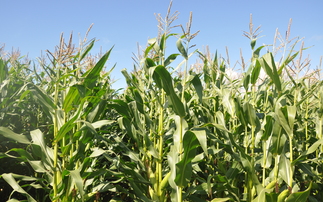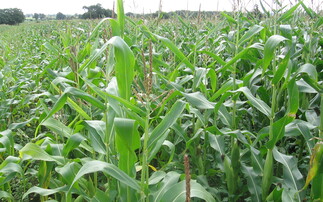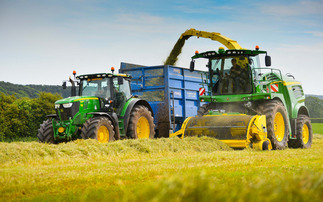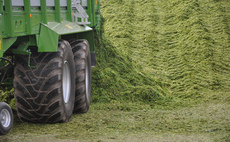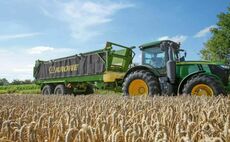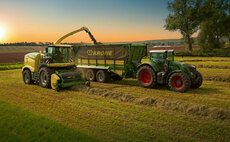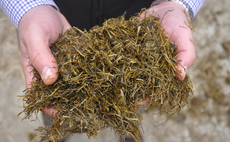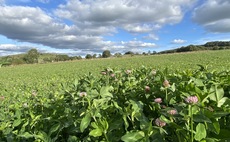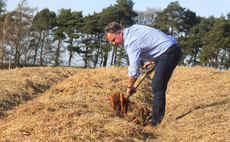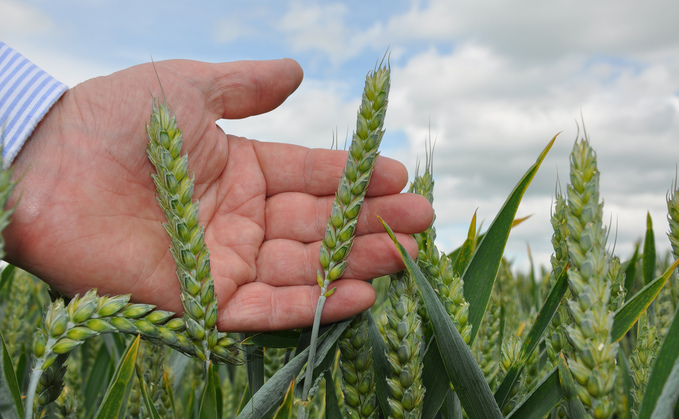
Whole Crop
Wholecrop and maize can be a valuable addition to any ration, but attention to detail both pre- and post-harvest is key.
Jamie Morton, support manager of Krone, lists a few vital checks to make before heading into the field to harvest wholecrop.
"Setting the header pressure correctly provides sufficient float without bouncing, thus avoiding soil ingress or knife damage and preventing premature bed wear," he explains.
"Adjusting the drum bottom and blower correctly optimises crop flow and blow, resulting in better crop transition into trailers. Consider installing a grain saver plate to stop grain loss below feed-rolls.
"For crops at the soft cheese growth stage, a crop processer will be needed on the harvester to enable starch digestion by the cow.
"Ensure the processor roller gap is aligned to the value shown on the harvester screen to avoid misinterpretation in the cab of the actual setting, resulting in uncracked grains.
Chop length will need to be adjusted according to the dry matter [DM] value of the wholecrop to ensure good consolidation in the clamp, he adds.
Peter Smith, business manager of Volac, suggests wholecrop tends to be more difficult to consolidate as it is generally harvested at a higher DM than grass silage.
"Deciding what type of feed is required will dictate when whole-crop is harvested," he explains.
"Farmers looking for bulk will mow at 30-40% DM. Most harvest it at 40-50% DM to balance digestibility with good starch levels.
"At 50% DM, whole-crop is a high fibre feed and a processor will be necessary to crack the grain to allow the cow to digest it properly.
Additives such as Ecocool or Ecocorn help prevent heating in whole-crop silage, adds Peter.
"Fill the wholecrop evenly in the clamp with layers no thicker than 100-150mm to aid consolidation and place a layer of fresh grass at least 0.5 metres deep on top of the wholecrop to deter vermin and add weight before covering carefully and weighting down."
Zinc and magnesium are the two most widespread nutrient deficiencies found in maize crops, according to Yara's Philip Cosgrave.
He says: "Maize is high yielding, but only if the nutritional demands of the crop are met. The critical stage for nutrition is when the crop reaches six leaves and rapid plant development begins."
"Using foliar applications bypasses the root system and ensures fast and efficient absorption of nutrients and other bioactive compounds through the leaf."
Results from Yara's 2022 maize trial demonstrated the positive effect from combining foliar nutrition and a biostimulant on crop performance, increasing DM yield by an extra 2.5 tonnes/hectare.
"YaraVita BIOTRAC contains zinc, magnesium, potash and phosphate, stimulating root growth. The biostimulant in the product helps protect the crop against biotic factors, such as drought and cold temperatures."
Campaign for Better Silage

Campaign for Better Silage is a new 2023 initiative brought to you by Krone, Sinclair McGill, Volac and Yara, offering advice to dairy farmers on how to navigate the inevitable grassland challenges 2023 will bring, as well as offering best practice guidance to ensure maximum production on every farm.
The exceptionally dry weather in 2022 has left many grassland farmers with a shortfall of silage and 2023 looks to set to be a particularly challenging season for many.
That said, some farmers did manage the 2022 season better than others and employed grassland techniques which have seen them finish the year with adequate stocks.
The continuing economic crisis, coupled with unquestionable changing weather patterns, means that identifying and sharing the techniques which produce the best results is going to be critical for the industry to embrace moving forward.
Watch the launch debate LAMMA 2023, below... YouTube channel.








